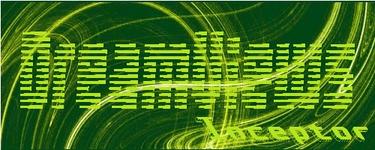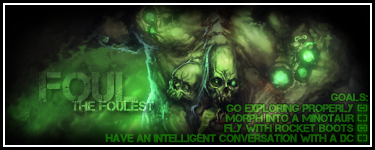Sometimes I like that I can hear my breaths because I just count my breaths to keep my mind off other things. Just think about it, It's not like you are going to forget how to breath so as long as you know you're fine, you're fine. |
|
Results 1 to 12 of 12
-
10-24-2010 03:45 AM #1
Have you ever experienced this in the onset of sleep paralisis?
So last night i was in bed doing affermations in my head that i was going to have a lucid dream. After a while i felt my self start to drift and i think fell asleep for a time or atleast lost presence of mind, but it felt like only a fraction of a second and when i regained conciousness, it felt like i was tilted back and into my bed on a small angle and it felt like someone was sitting on my chest and it was difficult to breath, i tried to remain calm and go with it and i was able to for a while, but it was taking a lot of concious effort to keep taking in air, eventually i could hear my lungs taking the air in very loud in my ears, and i could hear how i was struggling to draw breath and i panicked and snapped into conciousness and sat in bed. Are there any suggestions on how i can keep myself calm, or what measures i can take to prepare for this in the future?
-
10-24-2010 07:48 AM #2I am here to Incept your mind...

-
10-24-2010 11:48 AM #3
I love when people tell me it felt like someone was sitting on their chest. Check out the etymology of the word nightmare.
Online Etymology Dictionary
Night-Mares: Demons that Cause Nightmares
nightmare
late 13c., "an evil female spirit afflicting sleepers with a feeling of suffocation," compounded from night + mare "goblin that causes nightmares, incubus," from O.E. mare "incubus," from mera, mære, from P.Gmc. *maron "goblin," from PIE *mora- "incubus," from base *mer- "to rub away, harm, seize" (cf. first element in O.Ir. Morrigain "demoness of the corpses," lit. "queen of the nightmare," also Bulg., Serb., Pol. mora "incubus;" Fr. cauchemar, with first element is from O.Fr. caucher "to trample"). Meaning shifted mid-16c. from the incubus to the suffocating sensation it causes. Sense of "any bad dream" first recorded 1829; that of "very distressing experience" is from 1831.The mare in nightmare is not a female horse, but a mara, an Anglo-Saxon and Old Norse term for a demon that sat on sleepers' chests, causing them to have bad dreams.
Dialect variants, as explained below, include the forms mara, mahr, mahrt, mårt, and others.
In High German, the demon who causes bad dreams is most often called an Alp, a word that is etymologically related to elf.
A mare-induced bad dream is called a nightmare in English, martröð (mare-ride) in Anglo-Saxon and Icelandic, mareridt (mare-ride) in Danish, mareritt (mare-ride) in Norwegian, and Alpdruck (alp-pressure) or Alptraum (alp-dream) in German.
-
10-24-2010 12:51 PM #4Member

- Join Date
- Oct 2010
- Posts
- 12
- Likes
- 0
this is how i wake i wake in to deep paralysis this is my sleep disorder what i do is shut my eyes and stay calm relax.. and even try and get your self to go bk to sleep but just keep thinking About something nice ull wake bk up but only your dreaming its really weird its just like the dream was in my bedroom happening while i was wide awake white infront of my very eyes
-
10-24-2010 04:27 PM #5
thank you, i'll try this next time.
glad you got a kick out of the way that i described my experience, and it is interesting information, but i must wonder how knowing the etymology of the word nightmare will help me get through the onset of sleep paralysis?
-
10-25-2010 05:51 PM #6
-
10-25-2010 08:18 PM #7
never purposly, but i have experienced sleep paralysis. probably 8-10 times total in my life. i remember it at a very young age, and being absolutely terrified. ive never experienced the hallucinations that go along with it however. i just remember a span of maybe 5 or 10 seconds in which im completly awake, but i cannot move. its as if im being sat on and having my eyes forced shut. it happened for me last maybe a lil over a year ago. it'd be pretty cool to embrace it and enjoy the effects..ill have to research more.
-
10-25-2010 10:34 PM #8
The key is to allow it to happen.
I am here to Incept your mind...

-
10-25-2010 10:47 PM #9Wololo Achievements:









- Join Date
- Jul 2009
- LD Count
- ∞
- Gender

- Location
- Spiral out, keep going.
- Posts
- 2,909
- Likes
- 908
- DJ Entries
- 10
-
10-26-2010 04:35 AM #10
-
10-26-2010 11:55 PM #11
Sorry if it came across that way, it was just a stream of consciousness, and i admit upon re-reading it, i could have worded it much better. It was meant as a serious question i was looking for your feed back, and would still appreciated it if you'll still give it.
thanks to everyone else for their input i really do appreciate it
-
10-27-2010 07:53 AM #12
No I'm sorry I don't have much to add. Truth of the matter is I haven't experienced true, terrible, nightmareish sleep paralysis. I've only ever induced a mild sleep paralysis while I was attempting to WILD. I just love the etymology of the word Nightmare and thought that, given you'd said it felt like someone was sitting on your chest, you might get a kick out of it as well.
Each time I see someone post about terrible sleep paralysis episodes, the advice that I see given is that you have to realise it's just your mind, it's not real blah blah blah. I'm sure this is rather hard to do while a shadowy demon is ripping your soul out through your belly button.
Best of luck with it.
Similar Threads
-
First time perpusly in sleep paralisis
By Thethetheluis in forum Introduction ZoneReplies: 15Last Post: 12-20-2009, 01:35 AM -
was this sleep paralisis?
By omgsh in forum Lucid ExperiencesReplies: 5Last Post: 04-18-2009, 09:14 PM -
False Sleep Onset
By FarSeeker in forum General Lucid DiscussionReplies: 1Last Post: 08-28-2007, 06:36 PM -
Scary Experience. Sleep Paralisis
By HyperNova in forum Attaining LucidityReplies: 11Last Post: 04-12-2006, 08:23 PM -
sleep paralisis scary!
By awakeness in forum General Lucid DiscussionReplies: 10Last Post: 06-23-2005, 11:20 PM




 LinkBack URL
LinkBack URL About LinkBacks
About LinkBacks





 Reply With Quote
Reply With Quote





Bookmarks